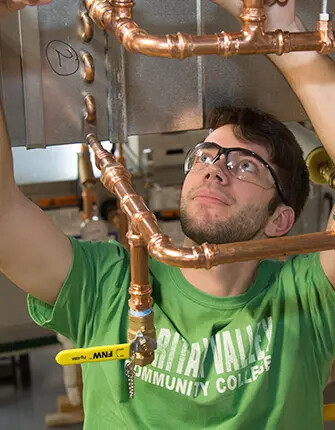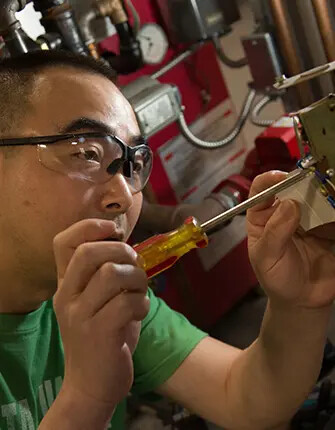Learn the skills you need to become a successful commercial energy management technician in a modern facility with the latest testers, instrumentation and equipment. The program was developed in partnership with local industry experts. You’ll also gain valuable, hands-on experience in mechanical systems by working in our campus’ living lab.
Consider one of two options:
- 1-year Certificate – Prepares you for an entry-level technician position.
- 2-year AAS Degree – Prepares you for any level CEM Tech position.
Job assistance is available for all graduates. The programs are eligible for federal and state student financial aid.
To enroll in either program you must have a high school diploma or equivalency.






